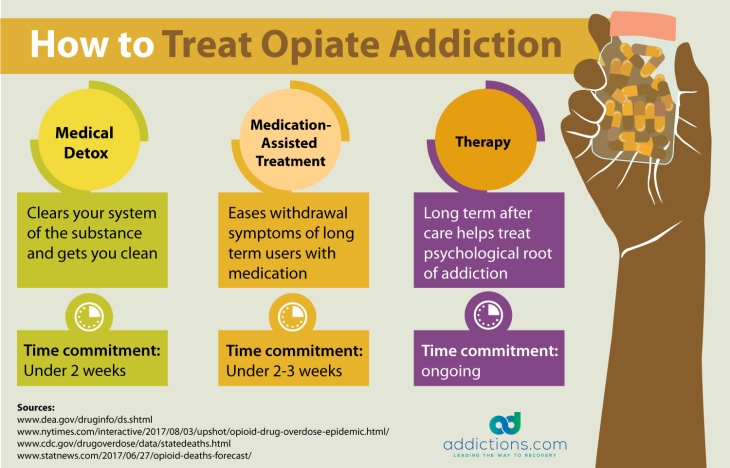Little Known Facts About What Is Considered Medical Necessity For Addiction Treatment.
Nonetheless, they take it." Researchers don't yet comprehend why some people end up being addicted while others do not. Addiction tends to run in households, and certain kinds of genesStretches of DNA, a compound you acquire from your parents, that define attributes such as your threat for certain disorders, such as dependency. have been connected to different types of dependency.
" Similar to heart problem or diabetes, there's nobody gene that makes you susceptible," Koob says. Other factors can also raise your possibilities of dependency. "Growing up with an alcoholic; being abused as a kid; being exposed to remarkable stressall of these social aspects can contribute to the risk for alcohol addiction or drug abuse," Koob says.
Satisfaction circuits in adolescent brains also run in overdrive, making alcohol and drug use a lot more satisfying and attracting. NIH is introducing a new across the country research study to find out more about how teen brains are altered by alcohol, tobacco, marijuana, and other drugs. Researchers will utilize brain scans and other tools to assess more than 10,000 youth over a 10-year period (what are the changes to the treatment addiction).
The How Much Does The Us Spend On Addiction Treatment Statements
Although there's much still to find out, we do understand that avoidance is vital to reducing the harms of addiction. "Childhood and teenage years are times when parents can get involved and teach their kids about a healthy lifestyle and activities that can secure against the usage of drugs," Volkow states. "Physical activity is essential, as well as getting taken part in work, science projects, art, or socials media that do not promote usage of drugs." To deal with dependency, scientists have identified several medications and behavioral therapiesespecially when used in combinationthat can help people stop using specific substances and avoid regression.
" Treatment depends to a big extent on the seriousness of dependency and the private person," Koob includes. "Some individuals can stop cigarette smoking cigarettes and alcohol use disorders on their own. More extreme cases might need months or perhaps years of treatment and follow-up, with genuine efforts by the private and generally total abstinence from the compound afterward." NIH-funded scientists are likewise evaluating experimental therapies that may enhance the effectiveness of established treatments.
Researchers are likewise examining the potential of vaccines versus nicotine, cocaine, and other drugs, which may prevent the drug from going into the brain. "Dependency is a destructive illness, with a reasonably high death rate and major social repercussions," Volkow states. "We're exploring several strategies so individuals will eventually have more treatment options, which will increase their chances of success to help them stop taking the drug." To find openly financed addiction treatment centers in your state, call 1-800-622-HELP, or check out https://findtreatment.samhsa.gov/.
Not known Facts About What Type Of Grief Does And Individual With Addiction Go Through In Treatment
The National Mental Health Doctor Institute of Substance Abuse (NIDA) defines addiction as a chronic, relapsing brain illness that is defined by compulsive drug seeking and use, despite damaging repercussions. 1 In the United States, 810% of people over the age of 12 are addicted to alcohol or other drugs. That's approximately 22 million individuals.
It can't be treated, but it can be managed with treatment. Other examples of chronic diseases include asthma, diabetes, and cardiovascular disease. It is important that treatment at the same time resolves any co-occurring neurological or mental conditions that are understood to drive susceptible individuals to experiment with drugs and end up being addicted in the first place.

3 Studies published in top-tier publications like The New England Journal of Medicine support the position that dependency is a brain disease. 4 An illness is a condition that alters the method an organ functions. Addiction does this to the brain, changing the brain on a physiological level. It literally modifies the way the brain works, rewiring its basic structure.
How Could The Family Genogram Be Applied To The Treatment Of A Family With Addiction Issues for Beginners
Although there is no remedy for addiction, there are lots of evidence-based treatments that are efficient at handling the disease. how to provide addiction treatment for those who do not have insurance or medicaid. Like all chronic illnesses, dependency requires continuous management that may include medication, therapy, and lifestyle modification. Once in healing from compound usage disorder, a person can go on to live a healthy and effective life.
The human brain is wired to reward us when we do something satisfying. Exercising, eating, and other pleasurable behaviors straight connected to our health and survival set off the release of a neurotransmitter called dopamine. This not just makes us feel great, but it motivates us to keep doing what we're doing.
5 Drugs trigger that same part of the brainthe reward system. But they do it to a severe degree, rewiring the brain in harmful ways. When someone takes a drug, their brain launches severe amounts of dopamineway more than gets launched as an outcome of a natural pleasant behavior. The brain overreacts, decreasing dopamine production in an attempt to stabilize these abrupt, sky-high levels the drugs have actually developed.
The Facts About Why Is It Important To Have Gender Specific Groups For Addiction Treatment Uncovered
How the Brain Reacts Click for more info To Natural Benefits & Drugs (NIDA) Studies have revealed that constant drug use badly limits a person's capacity to feel satisfaction. at all. 6 With time, drug usage leads to much smaller releases of dopamine. That suggests the brain's reward center is less receptive to enjoyment and pleasure, both from drugs, along with from every day sources, like relationships or activities that an individual once taken pleasure in.
7 Withdrawal occurs when an individual who's addicted to a compound stops taking it entirely: either in an effort to stop cold turkey, or due to the fact that they do not have access to the https://charliebypy678.wordpress.com/2020/10/25/the-basic-principles-of-who-needs-physician-speakers-needed-to-discuss-addiction-treatment/ drug. how many addiction treatment centers in ma. Someone in withdrawal feels absolutely awful: depressed, despondent, and physically ill. Brain imaging studies from drug-addicted people reveal physical, quantifiable modifications in areas of the brain that are vital to judgment, choice making, learning and memory, and habits control.
8 An appealing trainee might see his grades slip. A bubbly social butterfly may suddenly have trouble getting out of bed. A trustworthy brother or sister may begin taking or lying. Behavioral modifications are straight linked to the drug user's altering brain. Yearnings take control of. These yearnings are agonizing, constant, and sidetracking.
About What Is Evidence Based Treatment For Addiction
Specifically offered the strength of withdrawal signs, the body desires to prevent being in withdrawal at all expenses (tn involuntary addiction treatment how to). "We require to inform our kids that one drink or one tablet can result in an addiction. A few of us have the genes that increase our threat of dependency, even after simply a couple of usages.

However at some time throughout use, a switch gets turned within the brain and the choice to utilize is no longer voluntary. As the Director of the National Institute on Drug Abuse puts it, it's as if an addicted individual's brains has been pirated. Anyone who tries a substance can end up being addicted, and research study reveals that most of Americans are at threat of developing dependency.
What's more, 42% of 1718 years of age report that they've tried illegal drugs. 10 After preliminary direct exposure, no one picks how their brain will respond to drugs or alcohol. So why do some individuals develop dependency, while others don't? The current science indicate three main aspects. Scientific research study has revealed that 5075% of the probability that a person will establish dependency comes from genes, or a family history of the health problem.
